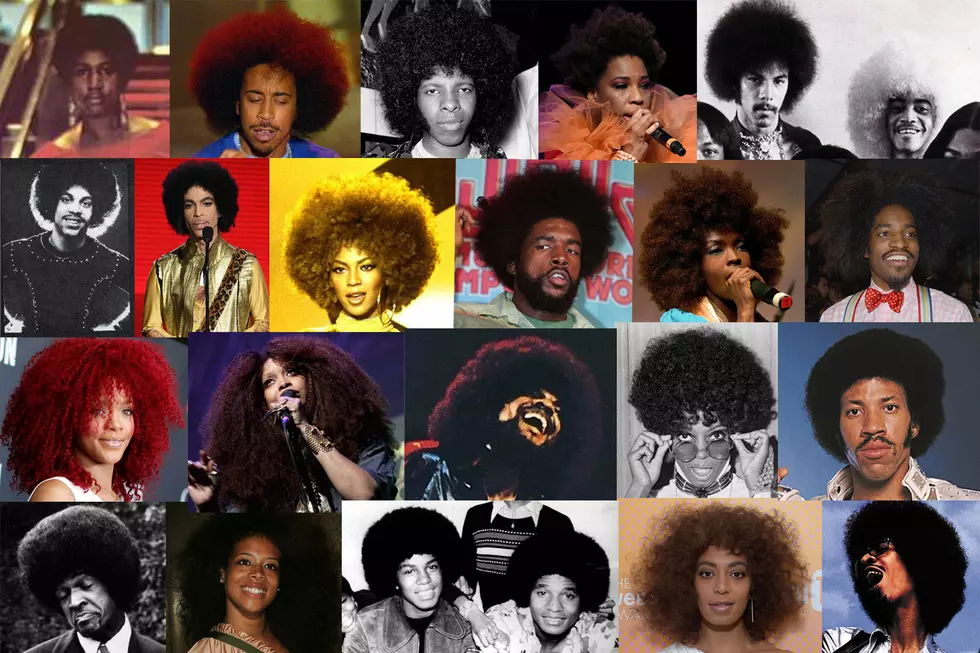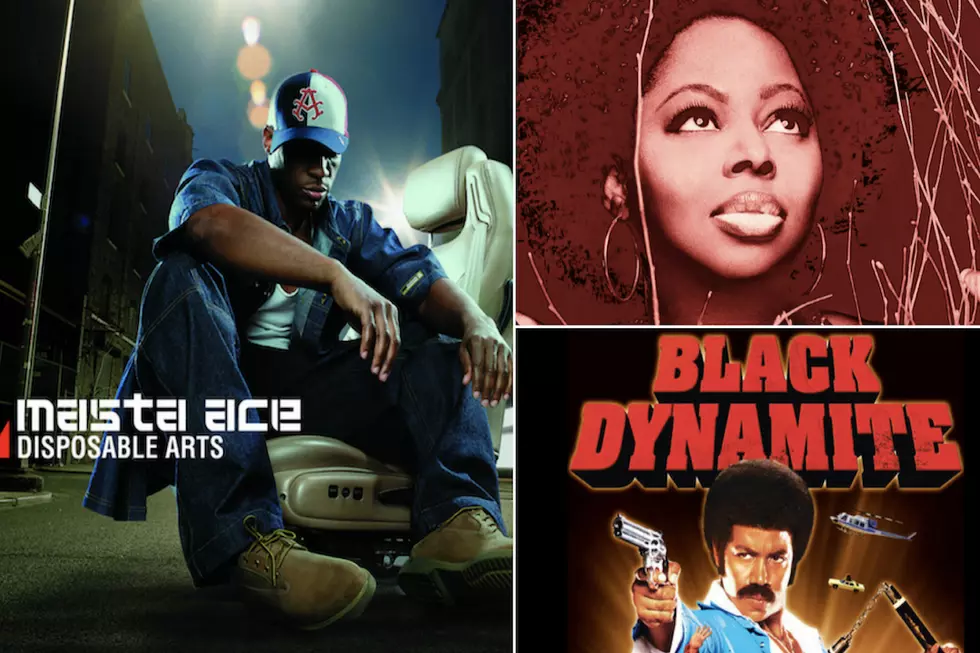
Music’s Greatest Afros
The Afro has always been more than just a hairstyle. It's a statement, and in many ways, a symbol of resistance. We're looking at some of the greatest Afros in hip-hop and R&B history in the gallery below.
No one's hair has been politicized the way black people's has. Even now, we see stories about young black girls being suspended and put out of school for wearing their hair the way it naturally grows out of their head. And in September 2016, a U.S. federal court went so far as to legally ban dreadlocks in the workplace.
It's why, when Beyoncé sang on 2016's "Formation" about how she likes her baby's hair with "baby hair and Afros," the statement was more than about beauty— it was about defying traditional European beauty standards, and embracing blackness, an important declaration that immediately hit home for many. A year later, her sister, Solange gently warned, "don't touch my hair," shining a light on the politicization of black hair once more. And historically, perhaps nothing is blacker than the Afro.
While black people's hair had long been defined in derogatory terms—"nappy," "unkept," "wiry," "unruly" -- in the 1960s, during the Civil Rights Movement, black people began to shake off those terms, awakening to the beauty they naturally possessed, and defiantly publicly reclaiming it. One way they immediately did that was through their hair. The affirming moment spawned the Black Is Beautiful movement, which sprang from the Black Power movement. The message was simple— you will not deny my blackness. I will not be ashamed, and you will not deny my right to exist.
“Black activists were agitated with white supremacy and Jim Crow laws, and they wanted to show an outward sign of their frustration toward Dr. Martin Luther King Jr.’s nonviolent philosophy,” Chad Dion Lassiter, president of the Black Men at Penn School of Social Work, Inc. at the University of Pennsylvania School of Social Policy and Practice explained to Ebony in 2017. “The Afro was black beauty personified without white validation, and it did not care about critics. For many black men, it was about cool pose and hyper-masculinity in the face of police brutality and constant oppression.”
It was common at the time to see everyone from political agitator Angela Davis to Jesse Jackson and Black Panther founders Huey P. Newton, and Bobby Seale rocking Afros as they fought for liberation. The movement obviously spilled into pop culture as well, with musicians like James Brown, Nina Simone, Sly Stone, Aretha Franklin, Chaka Khan and countless other soul and funk stars rocking 'Fros as well.
Although the Afro has lingered in pop culture since its heyday in the '60s and '70s, it has seen a resurgence in the wake of the Black Lives Matter Movement, which was sparked after the 2012 killing of unarmed teenager Trayvon Martin, and really took flight in 2014, after Officer Darren Wilson shot and killed unarmed teen Michael Brown in Ferguson, Mo.
“The Natural Hair movement had a big impact on reviving the Afro, specifically due to the fact that the Afro is the most natural reaction for textured hair,” Florida-based master hairstylist Dee Carrington told Ebony. “I’d venture to say the Afro is the cornerstone of the movement, but it has emerged as something more unique as it relates to each individual. Now we have so many different Afro shapes and sizes.”
Though the hairstyle has been co-opted, and at times worn offensively, the powerful origins of the hairstyle, and the freedom behind wearing it remain untarnished.
To that end, the creators of World Afro Day aim to remember the importance of the Afro. Tagged as an "annual global day of change, education and celebration of Afro hair," World Afro Day is described as "a global day of change, education and celebration of Afro hair, culture and identity."
Take a look at some artists who rocked beautiful Afros throughout the years.
More From TheBoombox









